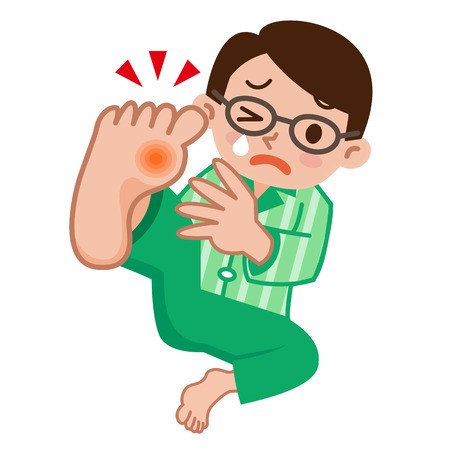Gout...maybe it's not about meat
Recent research shows us that maybe gout isn't caused by eating meat...that in fact it is triggered by high insulin levels and fructose intake.

The Pain of Gout!!!
Insulin levels increase in our bodies after we have eaten carbohydrates and protein. Consumption of fructose (especially high fructose corn syrup) also increases insulin levels, as well as increasing fat-deposition. The typical American diet is not only high in carbohydrates, it is also high in hidden sugar and fructose and other additives that can ramp up insulin production.
What do you do if you suffer from gout? It is a good idea to have your fasting insulin levels checked.
The most important thing you can do? Change the way you eat! Here is a step-by-step plan for improving your insulin levels and your gout:
Week 1, 2, and 3: Increase your vegetable intake. The goal is 4-5 servings of vegetables per day...yes, I said 4-5 servings! That isn't fruit and veggies combined, just veggies.
Week 4, 5 and 6: Continue with week 1, 2, and 3 AND Eliminate the sugar and high fructose corn syrup in your diet. I know this is hard, especially the first 4 or 5 days. You will be AMAZED how much better you feel.
You may also eat 2-3 servings of tart cherries per day for an acute attack, or 1 serving per day for prevention, or use an extract as outlined in the supplements section.
What medications and supplements will help?
*remember to check that you are getting a supplement that is guaranteed pure and potent.
If you do have high insulin, there are two medications that have been shown to decrease insulin levels AND treat gout. Metformin is a prescription medication usually taken twice daily. One drawback with metformin is how irritating it can be to the intestine. Berberine is a supplement that is also taken twice daily that is helpful to the intestinal health. Either would be a good choice.
A prescription drug, allopurinol, has been shown to be extremely effective at preventing gout attacks and should be considered.
Tart or Black Cherry Juice
If you can't eat tart cherries, this is the next best thing. A study published in Arthritis & Rheumatism showed that cherry extract use decrease gout attacks, especially when combined with allopurinol. Use 2-3 servings per day for acute attacks and 1 serving per day for prevention.
Omega-3 Fatty Acids,
Omega-3 Fatty Acids are found in fish oil, as well as avocado, flax seed, and some other sources. Over time, Omega-3 Fatty acids can decrease your risk for gout. Look for a mercury-free Omega-3 supplement. You need 2000-3000mg of Omega-3 Fatty acids per day. Add the amount of DHA and the EPA on the Facts label to find the dose you need. I prefer a product called My Foundation Omega-3, as it only requires 1 capsule per day to achieve this dose instead of 4 to 6.
Magnesium
For most people, the higher the magnesium intake, the lower the chance of gout attack. Magnesium may help reduce attack frequency.
Magnesium oxide is not a good magnesium source, as it is not well absorbed and can cause diarrhea. I recommend the use of a chelated magnesium (the magnesium is bound to protein, which doubles the absorption). Dosage is 300mg of Magnesium daily